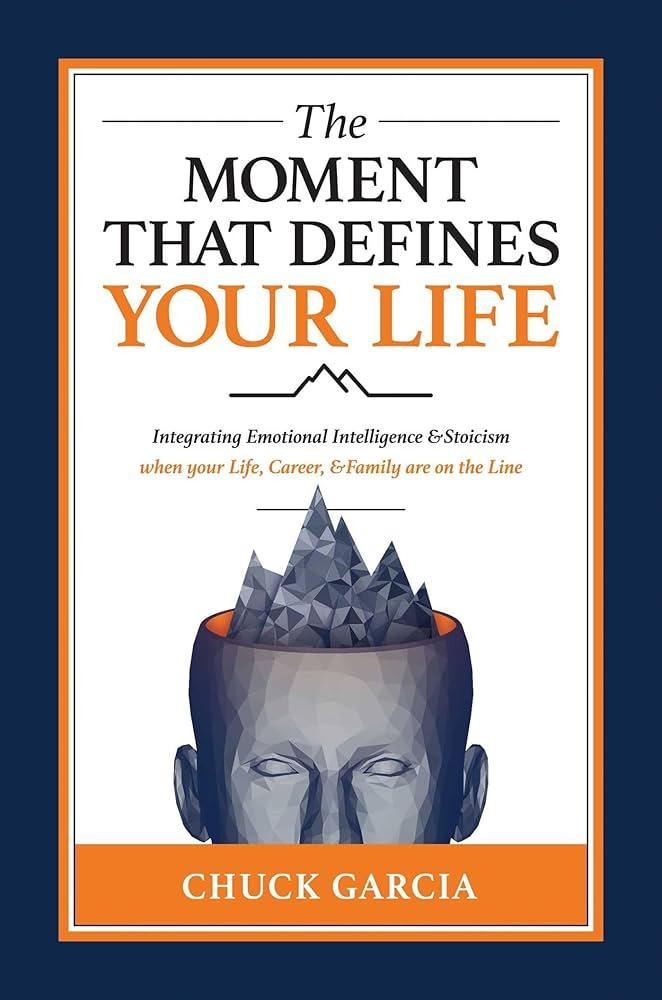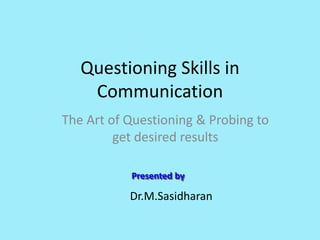Beyond Small Talk: Probing Questions for Deeper Connections

Small talk can only take a conversation so far before it starts to feel like you’re treading water in a kiddie pool. If you’re tired of discussing the weather and what you had for lunch, it’s time to dive into deeper waters with some probing questions that will make even the most shallow chats plunge into the depths of meaningful connection. So grab your scuba gear and get ready to explore the uncharted territories of conversation with our guide to going beyond small talk. > The Importance of Meaningful Conversations
> The Importance of Meaningful Conversations
Have you ever engaged in a conversation that left you feeling like you were floating on cloud nine? That’s the power of a meaningful conversation! It’s like hitting the jackpot in the lottery of social interactions.
When we engage in meaningful conversations, we are not just exchanging words; we are exchanging emotions, thoughts, and a little piece of our souls. It’s like a dance of words where each step brings us closer to understanding and connecting with the other person.
Meaningful conversations are like a breath of fresh air in a world filled with small talk and superficial interactions. They make us feel alive, invigorated, and truly seen by the person we are conversing with. It’s like finding a rare gem in a sea of pebbles.
So, the next time you find yourself in a conversation, ditch the small talk and dive deep into the realm of meaningful exchanges. Your heart and soul will thank you for it, and who knows, you might just find yourself on cloud nine once again!
 > How Probing Questions Foster Deeper Connections
> How Probing Questions Foster Deeper Connections
When it comes to fostering deeper connections, probing questions are like the secret sauce that takes your conversation from small talk to soul talk. These questions have the power to peel back the layers of superficiality and get to the juicy stuff underneath.
Imagine sitting down with a friend and asking them, “If you could have dinner with any historical figure, who would it be and why?” Suddenly, you’re not just discussing what you had for lunch, you’re delving into your friend’s passions, interests, and values. Probing questions have a way of sparking meaningful conversations that stick with you long after they’re over.
By asking questions that require more than a one-word answer, you’re inviting the other person to open up and share their thoughts, feelings, and experiences. Questions like “What’s something you’ve always wanted to do but haven’t had the courage to try?” or “Tell me about a moment that changed your perspective on life.” encourage vulnerability and authenticity, paving the way for deeper connections to flourish.
So, the next time you find yourself in a conversation that feels a bit shallow, don’t be afraid to dig a little deeper with some probing questions. You never know what treasures you might unearth beneath the surface.
> Creating a Safe Space for Vulnerability
In this safe space, we encourage everyone to let their guards down and be their true, vulnerable selves. This is a judgment-free zone where you can share your deepest fears, insecurities, and embarrassing moments without any fear of ridicule. Remember, we’re all in this together!
Not sure where to start? Here are a few ideas to get those vulnerability juices flowing:
- Share a childhood trauma that still haunts you to this day.
- Admit to a secret talent that you’ve been too shy to show off.
- Confess a bizarre phobia that no one understands.
Just remember, vulnerability is not a sign of weakness, but a display of courage. By opening up and showing your true self, you give others permission to do the same. So go ahead, take that leap of faith and share your most raw and authentic self with us. We promise to hold space for you with open arms and maybe a box of tissues.
 > Building Trust Through Authentic Dialogue
> Building Trust Through Authentic Dialogue
Have you ever tried building trust with someone through small talk, only to find out that they actually hate pineapple on pizza? It’s like a betrayal of the highest order! Well, fear not, because authentic dialogue is the key to establishing genuine connections and fostering trust.
When engaging in authentic dialogue, it is important to be open and honest about your thoughts and feelings. No more pretending to like pineapple on pizza just to impress someone – let your true self shine! This level of transparency allows for a deeper understanding between individuals and paves the way for real connections.
One of the best ways to build trust through authentic dialogue is by actively listening to the other person. Show genuine interest in what they have to say, ask questions, and really engage with their perspective. This simple act of attentiveness can work wonders in creating a bond based on mutual respect and understanding.
So, the next time you find yourself in a conversation with someone you want to build trust with, remember the power of authentic dialogue. Be yourself, listen intently, and watch as your connections deepen and grow stronger. And hey, maybe you’ll even find a fellow pineapple pizza hater along the way!
 > Navigating Difficult Topics With Sensitivity
> Navigating Difficult Topics With Sensitivity
When it comes to navigating difficult topics with sensitivity, it can sometimes feel like walking on a tightrope made of eggshells. But fear not, dear reader, for I have a few tips and tricks up my sleeve to help you tiptoe through these touchy conversations without causing a major meltdown.
First and foremost, it’s important to approach these conversations with a heaping dose of empathy and understanding. Put yourself in the other person’s shoes (unless they have really ugly shoes, in which case just imagine they’re wearing slippers), and try to see things from their perspective. Remember, we’re all human beings with feelings, even that grumpy coworker who always steals your lunch from the break room fridge.
Next, it’s crucial to choose your words carefully. Avoid using inflammatory language or making sweeping generalizations. Instead, opt for open-ended questions and statements that invite dialogue and encourage deeper understanding. And if all else fails, just throw in a few “I feel like…” or “In my opinion…” to soften the blow. It’s like adding a spoonful of sugar to help the medicine go down, except with less sugar and more empathy.
- Listen actively: Put down your phone, stop checking your watch, and actually listen to what the other person is saying. Eye contact is key here, unless you have a lazy eye, in which case just focus on the bridge of their nose.
- Stay calm: Take a deep breath, count to ten, maybe do a little yoga pose if you’re feeling fancy. Remember, it’s not about winning an argument, it’s about fostering mutual understanding (and maybe getting a free pass on your next mistake).
- Offer support: Sometimes all a person needs is a shoulder to cry on, a sympathetic ear to listen, or a truckload of chocolate to drown their sorrows. Be there for them, even if it means enduring a tear-stained hug or an awkward pat on the back.
In conclusion, navigating difficult topics with sensitivity doesn’t have to feel like defusing a bomb in a field of emotional landmines. By approaching these conversations with empathy, choosing your words wisely, and actively listening to the other person’s perspective, you can successfully navigate even the trickiest of topics without causing a major blow-up. So go forth, dear reader, armed with these tips and tricks, and remember: it’s always better to walk on eggshells than to break a few hearts.
> Techniques for Asking Open-Ended Questions
So you want to know how to ask open-ended questions, eh? Well, hold on to your hats because I’m about to blow your mind with some killer techniques. Ready? Here we go:
First up, **avoid those pesky yes or no questions like the plague**. Seriously, they’re like the dull, unimaginative sibling of open-ended questions. Instead, opt for questions that require more than a one-word answer. For example, instead of asking, “Do you like pizza?” try something like, “What’s your favorite type of pizza and why?” See the difference? It’s like night and day, my friend.
Next, **dig deep with your questions**. Don’t be afraid to get personal and really delve into the nitty-gritty of a topic. The more detailed and thought-provoking your question is, the more likely you are to get a juicy, insightful response. Give it a try and watch as the floodgates of conversation open wide.
**Encourage storytelling**. People love to share experiences and anecdotes, so why not give them the opportunity to do so? Ask questions that prompt them to recount a particular event or memory, and sit back as they regale you with tales of triumph, tragedy, and everything in between. It’s like being transported to another world, all through the power of a well-crafted question.
> Practicing Active Listening for Enhanced Connection
Active listening is a vital skill to master if you want to truly connect with others, whether it’s your partner, your boss, or even your pet goldfish. By honing your active listening abilities, you can show the other person that you are fully engaged in the conversation and eager to understand their perspective.
So how can you become an active listening pro? Here are some tips to get you started:
- Give the speaker your full attention: Put down your phone, turn off the TV, and for the love of all things holy, stop scrolling through TikTok. Eye contact and body language are key indicators that you are actively listening.
- Reflect back what you hear: Parrot back what the speaker says to show them that you are truly listening. Just be sure not to mimic their voice - that’s just creepy.
- Ask open-ended questions: Encourage the speaker to elaborate on their thoughts by asking questions that can’t be answered with a simple “yes” or “no”. This will show them that you are genuinely interested in their viewpoint.
FAQs
Q: How can I start a conversation with deeper questions without creeping someone out?
A: Just casually slip in a thought-provoking question like “If you could choose one superpower, what would it be?” If they look at you like you’re crazy, just pretend you were joking.
Q: What are some good icebreakers to transition into more meaningful conversations?
A: Start with a quirky fact about yourself or a random question like “What’s the weirdest food combination you’ve ever tried?” Trust me, nothing beats bonding over a mutual love for banana and mayo sandwiches.
Q: How can I keep the conversation flowing when asking deeper questions?
A: Listen actively and ask follow-up questions based on their responses. Remember, it’s not an interrogation – it’s a friendly chat about life, the universe, and everything in between.
Q: What if the other person doesn’t seem interested in delving into deeper topics?
A: Don’t force it! Not everyone is comfortable discussing their deepest fears or existential crises over brunch. Save the heavy stuff for your therapist – or your cat, if they’re a good listener.
Q: Are there any off-limits topics when trying to have deeper conversations?
A: Avoid politics, religion, and exes unless you enjoy awkward silences and potential arguments. Stick to more neutral territory like favorite childhood memories or embarrassing moments – trust me, you’ll thank me later.
Time to Dive Deeper!
Well, there you have it folks! The secret sauce to taking your conversations from small talk to soul-deep in just a few probing questions. So next time you find yourself trapped in a mind-numbing conversation about the weather, remember these tips and steer the ship towards meaningful connections.
Go forth and probe, dear readers! And who knows, you might just uncover a treasure trove of personal stories, dreams, and desires. Happy conversing! 🚀






